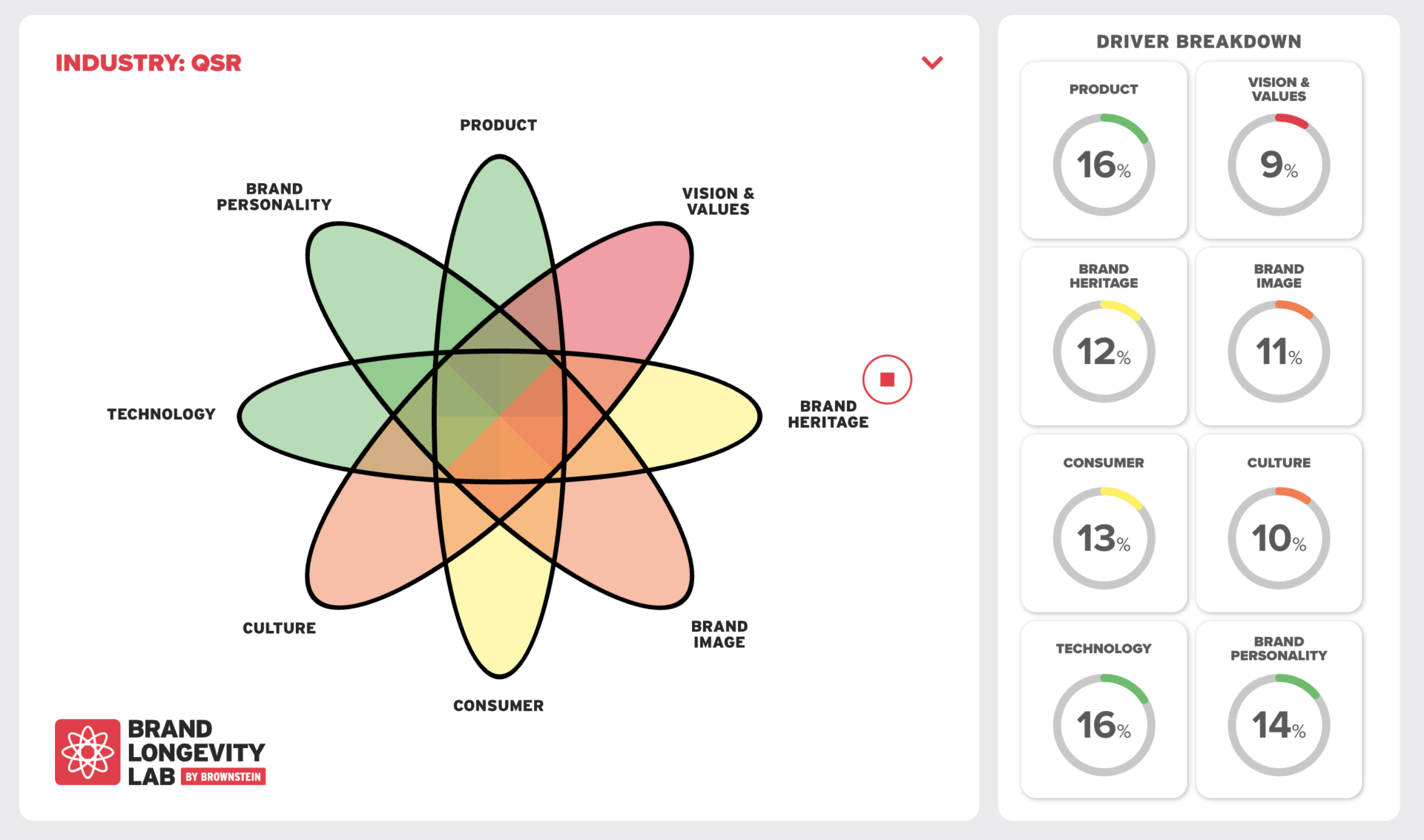It’s no secret that food retail chains have a love affair with mascots, promotions, and social media. From Ronald McDonald statues to Wendy’s Tweets — the quick service and fast casual (QSR) industry has always relied on big, colorful personalities that serve as memorable extensions of brands.
It’s no surprise that, according to our research study with The Harris Poll of 100+ of the world’s top brands, Brand Personality ranks as the top element for building longevity for QSR brands. (Check out how other industries compare here.) As you can see in the graphic below, Brand Personality, Product, and Technology lead the way in determining the long-term prospects of QSR companies.

The weight of these elements for QSR brands also indicates that they need to develop and execute nimble campaigns and product strategies to constantly keep up with the consumer. The location of these elements on the top left quadrant of our Brand Longevity Ecosystem indicates that QSR brands rely on quick product evolution, innovative brand stewardship, and openness to technological and digital change.
Our research also uncovered the top 3 attributes QSR brands need to establish resilience in the marketplace, which can help marketers make decisions in the months to come:
Establishing a reputation for relevance and reliability
Our study shows that QSR brands need to prioritize providing customers with seamless and reliable experiences from the start to the end of their customer journey. However, if brands experiment with new store locations and concepts, expanded menus, delivery services and more, they need to ensure that they maintain a sense of reliability and consistency for the consumer.
This should be a priority, addressed through a brand strategy that can communicate new offerings to customers effectively and without losing their trust and familiarity with the brand. Likewise, seasonal promotions that keep the brand relevant should be set up in a consistent and reliable fashion to maintain reliability and grow customer loyalty.
Adapt, evolve, and be a step ahead of competitors
QSR is an increasingly competitive industry undergoing a lot of change. What was once a unique differentiator for many disruptive brands — healthy food delivered through a convenient, seamless, technologically-enhanced experience — is increasingly becoming an industry standard. The push towards digitalization, food delivery, and tech during the pandemic also means that QSR brands are looking to reach their customers at home. QSR brands must leverage brand strategy and R&D to uncover product offerings and experiences that will allow them to remain ahead of competitors, and communicate new offerings effectively and distinctively through great advertisements.
Thinking about long-term success, not just immediate rewards
Many QSR brands today are looking to rapidly drive sales to offset COVID-19 losses, which means greater marketing spend on bold promotional campaigns. However, brands need to remember that having a strong legacy, proven expertise, and remaining true to their core values are key drivers for QSR brands’ long term success. Brands that have built a reputation for all of these attributes can’t afford to lose face by overcorrecting or miscommunicating during the current economic recovery.
Follow the Thread
Insights from behind the headlines.